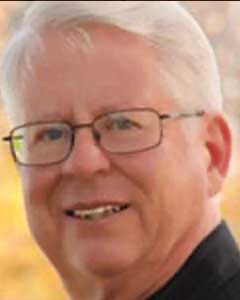One woman was permitted to audit a few of our male-dominated seminary classes, which I attended during the mid-60s. We were happy to include her, but all of us assumed that she was just “interested” in the subjects and that she would never be ordained a priest. Pastoral ministry was a male domain 50 years ago and only a few visionaries (like perhaps the solitary female student) thought that might ever change.
Fast-forward to theological college classes today—many of which continue to prepare candidates for ordained ministry—and the situation is almost a total reverse. A large number of our seminary graduates now are women.
Why did this shift take place? Because people in our society began to see the injustice of excluding women from church office and determined it to be a human right for women to be ordained alongside men.
When I attended seminary, there was little or no mention of Canada’s First Nations people and the tragic history of the larger culture’s relationship with them. The 60s were times of black power in the United States, but few Canadians who might have strongly supported “the negroes” (as we called African-Americans then) were unable to make associations between the plight of American blacks and native Canadians.
The same could be said about gay rights. I don’t recall any discussion of the possibility of same-sex marriage in our pastoral care classes. It didn’t seem possible that our nation would legalize gay matrimony. Everyone assumed that God meant marriage to be a covenant “between one man and one woman.”
What a shift of major proportions has taken place in the lives of pastors and congregations in Canada during the past half-century! I was trained to take the Bible seriously and to respect church tradition. Both interpreted women as subservient to men, First Nations people as culturally inferior and LGBT folk as misfits.
As women became ordained as pastors and key leaders in more of our mainline Canadian denominations, as concern for First Nations justice grew higher on our churches’ social agenda and as gay rights moved from the margins to legal acceptance, our churches have had to pay a big price.
A number of our members and adherents have come to view these changes as un-Christian—meaning unbiblical, disrespectful of honoured church teaching and a compromise with secular society. Those of us who stayed, but were also concerned for meaning and truth, suffered the same criticism and pangs of conscience as those “outsiders” we wanted to support.
The issues became more complex and sensitive still when First Nations Christians could not accept mainstream society’s views on same-sex marriage or when cherished liberal views were violated and abused by those with little regard for basic Christian values.
I rejoice in the human progress that I have seen in our churches these past 50 years. I realize that all this has come at considerable cost. I harbour both hope and concern for those who will be reflecting back from the year 2065.
Wayne A. Holst was a Lutheran pastor (ELCIC) for 25 years. He taught religion and culture at the University of Calgary for a quarter-century and co-ordinates adult spiritual development at St. David’s United Church, Calgary.





